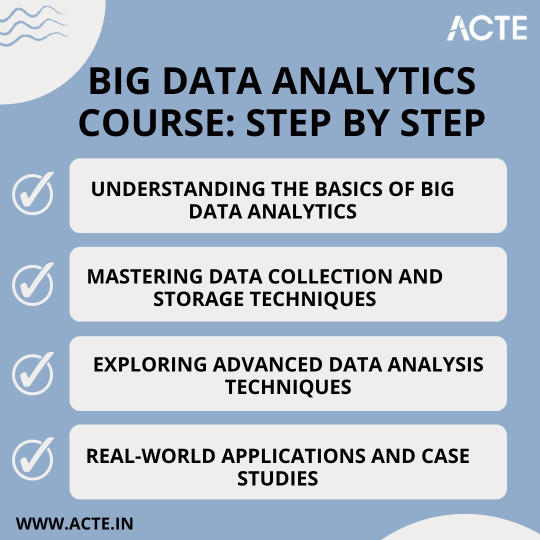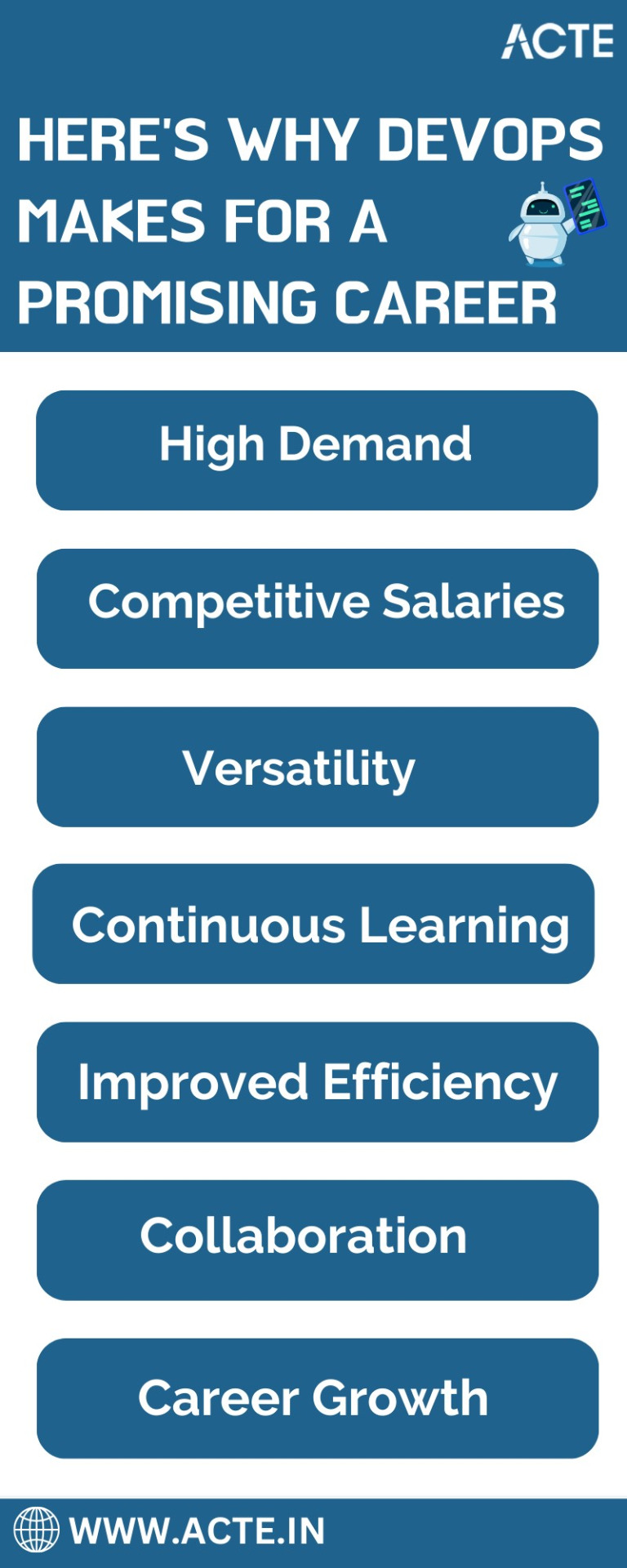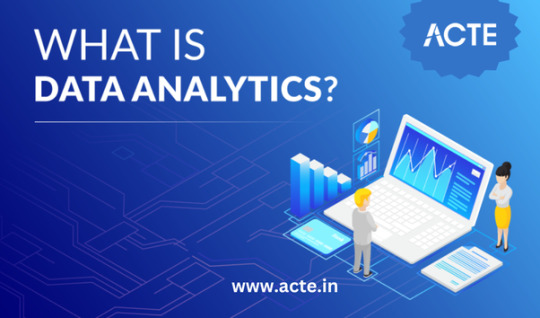#Advanced analytics in healthcare
Text
#Advanced analytics in healthcare#Predictive Analytics in Healthcare#Healthcare Data Analytics#Big Data in Healthcare#Big Data Analytics in Healthcare
0 notes
Text
The Transformative Benefits of Artificial Intelligence
Title: The Transformative Benefits of Artificial Intelligence
Artificial Intelligence (AI) has emerged as one of the most revolutionary technologies of the 21st century. It involves creating intelligent machines that can mimic human cognitive functions such as learning, reasoning, problem-solving, and decision-making. As AI continues to advance, its impact is felt across various industries and…

View On WordPress
#Advancements in Education#AI Advantages#AI Benefits#artificial intelligence#Customer Experience#Data Analysis#Data Analytics#Decision-Making#Efficiency and Productivity#Energy Management#Ethical AI Deployment.#Healthcare Transformation#Machine Learning#Personalized Learning#Personalized User Experiences#Robotics in Healthcare#Smart Cities#Smart Technology#Smart Traffic Management#Sustainable Development
2 notes
·
View notes
Text
Crafting Healthcare Excellence with SaMD

In the rapidly advancing digital healthcare realm, one of the most exciting developments is the rise of Software as a Medical Device (SaMD). This innovation is revolutionizing patient care for millions worldwide, offering a more convenient and cost-effective approach to healthcare.
SaMD, as defined by the International Medical Device Regulators Forum (IMDRF), refers to software intended for medical purposes that operates on mobile phones, tablets, and computers. They aid in diagnosis, screening, monitoring, and treating various physiological conditions, covering a wide range of patient needs, from diabetes management to cloud-based solutions offering crucial insights to clinicians.

With time, there has been a significant shift in medical device functionality. SaMD applications have benefited from advancements in software engineering, enabling the integration of third-party hardware and software. This integration optimizes patient care, making it more efficient and cost-effective. Additionally, SaMD applications adhere to rigorous regulatory standards, ensuring safety and efficacy.
SaMD applications often take the form of patient engagement applications or patient companion apps that serve as the patient’s primary link and point of interaction with the medical device system. Patient companion apps have become integral in managing chronic health conditions and supporting remote patients.
For instance, diabetic patients can now effectively manage their glucose levels through integrated systems that include wearable insulin pumps, Continuous Glucose Monitors and Cloud Analytics, all accessible through a patient companion application.
As the world embraces digital healthcare, SaMD patient companion apps are increasingly becoming indispensable for companies striving to achieve their clinical and operational goals and ensure a future where healthcare is patient-centric and accessible.
Discover how GlobalLogic, a Hitachi group company, utilizes its digital engineering expertise to help Medtech companies businesses in creating Software-as-a-Medical Device (SaMD) apps
https://social-innovation.hitachi/en-us/think-ahead/healthcare/transforming-healthcare-with-software-as-a-medical-device-patient-companion-app/
#patient engagement app#patient care#remote patient monitoring#advanced healthcare analytics#healthcare innovation#cardiac care#cardiac recovery#patient app#patient experience
0 notes
Text
CT & MRI Revolution: Boosting Comorbidity Diagnosis Amid Market Demand!
In the ever-evolving landscape of medical diagnostics, computed tomography (CT) and magnetic resonance imaging (MRI) scans stand as transformative tools, reshaping physicians' abilities to tackle complex comorbidities. This blog explores the groundbreaking advancements in these imaging technologies, the escalating market demands, and how CT and MRI scans are driving excellence in medical diagnostics.
Read Full Blog Here: https://www.grgonline.com/post/ct-mri-revolution-boosting-comorbidity-diagnosis-amid-market-demand
CT and MRI Scans: The Pillars of Medical Diagnosis
CT and MRI scans have emerged as the pillars of modern medical diagnostics. These imaging technologies provide unparalleled insights into the human body, enabling physicians to identify, diagnose, and treat various medical conditions with precision.
Escalating Market Demands: The Need for Precision
In today's healthcare landscape, precision is non-negotiable. The demands for accurate and timely diagnostics are skyrocketing as comorbidities and complex medical conditions become more prevalent. CT and MRI scans are answering this call with their ability to provide detailed, three-dimensional views of internal structures.
Advancements in Imaging Technology: Beyond the Basics
The advancements in CT and MRI technology are nothing short of revolutionary. Higher resolution, faster scanning times, and the ability to capture dynamic processes within the body have elevated these scans to new heights. These innovations ensure that physicians can make diagnoses and treatment decisions with confidence.
Enhancing Diagnostic Accuracy: Unearthing Hidden Pathologies
The power of CT and MRI scans lies in their ability to unearth hidden pathologies that may go undetected through traditional diagnostic methods. These scans excel in identifying early-stage cancers, vascular abnormalities, neurological conditions, and musculoskeletal issues, among others.
Multi-Modality Approach: Comprehensive Diagnostics
CT and MRI scans are often used with other imaging modalities, providing physicians with a comprehensive diagnostic toolkit. This multi-modality approach allows for a more holistic understanding of a patient's condition, leading to tailored treatment plans.
Market Leaders: Pioneering Excellence
Market leaders in CT and MRI technology are driving excellence in medical diagnostics. These companies are at the forefront of innovation, continuously pushing the boundaries of what is possible in imaging. Their commitment to research and development ensures that physicians have access to state-of-the-art equipment.
Case Study: Early Cancer Detection
Consider a case where a patient presents with vague symptoms, and traditional tests yield inconclusive results. CT and MRI scans are employed to provide a detailed view of the patient's internal organs. The scans reveal a small tumor that would have otherwise gone undetected. Thanks to the early diagnosis facilitated by CT and MRI scans, the patient receives timely treatment and achieves a full recovery.
Conclusion: A Diagnostic Revolution
CT and MRI scans are not just diagnostic tools; they are revolutionizing how physicians approach medical diagnoses. With their precision, accuracy, and ability to uncover hidden pathologies, these scans are empowering healthcare professionals to tackle complex comorbidities with confidence. As market demands for excellence in diagnostics continue to rise, CT and MRI scans are set to play an even more pivotal role in shaping the future of healthcare.
Visit our website now: https://www.grgonline.com/

#healthcare#market demand#Diagnose With CT#medical imaging#ct scan#mri scan#diagnosis process#Diagnosis Advancements#pharmaceutical industry#data analytics#market research#marketing
0 notes
Text
Risk Adjustment, Risk Adjustment Software, Risk Adjustment Solution, Medicare health plans, Medicare Risk Adjustment Continuous healthcare quality improvement is here. TheHealthcare360™ is the company to dramatically lower the barriers of entry and the operating costs of a value-based operational model for health plans, providers, and hospital systems.

#risk adjustment software#medicare health#medicare health plans#risk adjustment#medicare software#Advanced Healthcare Analytics#Healthcare Data Analytics#Value Based Care
0 notes
Text
AI & IT'S IMPACT
Unleashing the Power: The Impact of AI Across Industries and Future Frontiers
Artificial Intelligence (AI), once confined to the realm of science fiction, has rapidly become a transformative force across diverse industries. Its influence is reshaping the landscape of how businesses operate, innovate, and interact with their stakeholders. As we navigate the current impact of AI and peer into the future, it's evident that the capabilities of this technology are poised to reach unprecedented heights.
1. Healthcare:
In the healthcare sector, AI is a game-changer, revolutionizing diagnostics, treatment plans, and patient care. Machine learning algorithms analyze vast datasets to identify patterns, aiding in early disease detection. AI-driven robotic surgery is enhancing precision, reducing recovery times, and minimizing risks. Personalized medicine, powered by AI, tailors treatments based on an individual's genetic makeup, optimizing therapeutic outcomes.
2. Finance:
AI is reshaping the financial industry by enhancing efficiency, risk management, and customer experiences. Algorithms analyze market trends, enabling quicker and more accurate investment decisions. Chatbots and virtual assistants powered by AI streamline customer interactions, providing real-time assistance. Fraud detection algorithms work tirelessly to identify suspicious activities, bolstering security measures in online transactions.
3. Manufacturing:
In manufacturing, AI is optimizing production processes through predictive maintenance and quality control. Smart factories leverage AI to monitor equipment health, reducing downtime by predicting potential failures. Robots and autonomous systems, guided by AI, enhance precision and efficiency in tasks ranging from assembly lines to logistics. This not only increases productivity but also contributes to safer working environments.
4. Education:
AI is reshaping the educational landscape by personalizing learning experiences. Adaptive learning platforms use AI algorithms to tailor educational content to individual student needs, fostering better comprehension and engagement. AI-driven tools also assist educators in grading, administrative tasks, and provide insights into student performance, allowing for more effective teaching strategies.
5. Retail:
In the retail sector, AI is transforming customer experiences through personalized recommendations and efficient supply chain management. Recommendation engines analyze customer preferences, providing targeted product suggestions. AI-powered chatbots handle customer queries, offering real-time assistance. Inventory management is optimized through predictive analytics, reducing waste and ensuring products are readily available.
6. Future Frontiers:
A. Autonomous Vehicles:
The future of transportation lies in AI-driven autonomous vehicles. From self-driving cars to automated drones, AI algorithms navigate and respond to dynamic environments, ensuring safer and more efficient transportation. This technology holds the promise of reducing accidents, alleviating traffic congestion, and redefining mobility.
B. Quantum Computing:
As AI algorithms become more complex, the need for advanced computing capabilities grows. Quantucm omputing, with its ability to process vast amounts of data at unprecedented speeds, holds the potential to revolutionize AI. This synergy could unlock new possibilities in solving complex problems, ranging from drug discovery to climate modeling.
C. AI in Creativity:
AI is not limited to data-driven tasks; it's also making inroads into the realm of creativity. AI-generated art, music, and content are gaining recognition. Future developments may see AI collaborating with human creators, pushing the boundaries of what is possible in fields traditionally associated with human ingenuity.
In conclusion, the impact of AI across industries is profound and multifaceted. From enhancing efficiency and precision to revolutionizing how we approach complex challenges, AI is at the forefront of innovation. The future capabilities of AI hold the promise of even greater advancements, ushering in an era where the boundaries of what is achievable continue to expand. As businesses and industries continue to embrace and adapt to these transformative technologies, the synergy between human intelligence and artificial intelligence will undoubtedly shape a future defined by unprecedented possibilities.
19 notes
·
View notes
Note
I just read your post about Ai and can I just share that I work in archeology and I'm absolutely terrified of the way AI is becoming normalized within research. The University I work for recently granted our department a large budget for this research project, and instead of hiring new people, or taking even taking in undergrad students as assistant researchers, my superiors have been using ChatGPT. It's absolutely insane to me that it is being recommended for us to use it to create surveys and organize our collected data. we are even being told to use it if we're having trouble writing the summary reports that help us continue getting funding.
I use it almost everyday, and it is not 100% accurate. Its actually wrong a lot of the time when you're using it to do more advanced math so it's very worrisome that it's being used for quantitative research. it is so easy for things to be wrong and no one to even notice.
YES ITS SO SCARY !!! im in healthcare management and the company i’m working with is a supplier for hospitals and the way they use chat gpt to compare pricing and break down data and even just write emails for summaries is so scary because the calculations aren’t always correct and they admit that !! and they still use it !! means for breaking down data aren’t always the most effective. and it’s especially scary bc my friend who is a pharm tech has been consistently complaining that more and more drugs have become hard to order in larger quantities and they are having loads of shortages. they’ve had to limit how much they can give at a time significantly in a few pharmacies in my area and it’s like. if you chat gpt things like calculating when it comes to supplying things for the healthcare industry, you heavily risk accidentally miscalculating how you split things up or wtv the case may be and already scarce items will be even more scarce. it’s just a very very nauseating thing to hear — and young ppl especially !! the company i’m working with has also cut back so many interning spots with data analytics bc they rely on ai to do it !! there are so many young individuals that are slowly being robbed of experience they desperately need to build their careers and the economy isn’t exactly helping with the case either, and :,) it’s just. a rly rly big area for concern bc there seems to be no regulation whatsoever and i can’t wrap my head around it.
and besides the professional aspect, there’s also the social aspect you have to consider. ai generated images are becoming more and more accurate and we’re living in a time where we can start to make anyone’s voice and faces be generated to say / look however we want. there are so many dangers to that i don’t even think i need to go into but from every standpoint all ai screams to me is a way to make life more and more miserable instead of efficient :,)
21 notes
·
View notes
Text
The Skills I Acquired on My Path to Becoming a Data Scientist
Data science has emerged as one of the most sought-after fields in recent years, and my journey into this exciting discipline has been nothing short of transformative. As someone with a deep curiosity for extracting insights from data, I was naturally drawn to the world of data science. In this blog post, I will share the skills I acquired on my path to becoming a data scientist, highlighting the importance of a diverse skill set in this field.
The Foundation — Mathematics and Statistics
At the core of data science lies a strong foundation in mathematics and statistics. Concepts such as probability, linear algebra, and statistical inference form the building blocks of data analysis and modeling. Understanding these principles is crucial for making informed decisions and drawing meaningful conclusions from data. Throughout my learning journey, I immersed myself in these mathematical concepts, applying them to real-world problems and honing my analytical skills.
Programming Proficiency
Proficiency in programming languages like Python or R is indispensable for a data scientist. These languages provide the tools and frameworks necessary for data manipulation, analysis, and modeling. I embarked on a journey to learn these languages, starting with the basics and gradually advancing to more complex concepts. Writing efficient and elegant code became second nature to me, enabling me to tackle large datasets and build sophisticated models.
Data Handling and Preprocessing
Working with real-world data is often messy and requires careful handling and preprocessing. This involves techniques such as data cleaning, transformation, and feature engineering. I gained valuable experience in navigating the intricacies of data preprocessing, learning how to deal with missing values, outliers, and inconsistent data formats. These skills allowed me to extract valuable insights from raw data and lay the groundwork for subsequent analysis.
Data Visualization and Communication
Data visualization plays a pivotal role in conveying insights to stakeholders and decision-makers. I realized the power of effective visualizations in telling compelling stories and making complex information accessible. I explored various tools and libraries, such as Matplotlib and Tableau, to create visually appealing and informative visualizations. Sharing these visualizations with others enhanced my ability to communicate data-driven insights effectively.

Machine Learning and Predictive Modeling
Machine learning is a cornerstone of data science, enabling us to build predictive models and make data-driven predictions. I delved into the realm of supervised and unsupervised learning, exploring algorithms such as linear regression, decision trees, and clustering techniques. Through hands-on projects, I gained practical experience in building models, fine-tuning their parameters, and evaluating their performance.
Database Management and SQL
Data science often involves working with large datasets stored in databases. Understanding database management and SQL (Structured Query Language) is essential for extracting valuable information from these repositories. I embarked on a journey to learn SQL, mastering the art of querying databases, joining tables, and aggregating data. These skills allowed me to harness the power of databases and efficiently retrieve the data required for analysis.

Domain Knowledge and Specialization
While technical skills are crucial, domain knowledge adds a unique dimension to data science projects. By specializing in specific industries or domains, data scientists can better understand the context and nuances of the problems they are solving. I explored various domains and acquired specialized knowledge, whether it be healthcare, finance, or marketing. This expertise complemented my technical skills, enabling me to provide insights that were not only data-driven but also tailored to the specific industry.
Soft Skills — Communication and Problem-Solving
In addition to technical skills, soft skills play a vital role in the success of a data scientist. Effective communication allows us to articulate complex ideas and findings to non-technical stakeholders, bridging the gap between data science and business. Problem-solving skills help us navigate challenges and find innovative solutions in a rapidly evolving field. Throughout my journey, I honed these skills, collaborating with teams, presenting findings, and adapting my approach to different audiences.
Continuous Learning and Adaptation
Data science is a field that is constantly evolving, with new tools, technologies, and trends emerging regularly. To stay at the forefront of this ever-changing landscape, continuous learning is essential. I dedicated myself to staying updated by following industry blogs, attending conferences, and participating in courses. This commitment to lifelong learning allowed me to adapt to new challenges, acquire new skills, and remain competitive in the field.
In conclusion, the journey to becoming a data scientist is an exciting and dynamic one, requiring a diverse set of skills. From mathematics and programming to data handling and communication, each skill plays a crucial role in unlocking the potential of data. Aspiring data scientists should embrace this multidimensional nature of the field and embark on their own learning journey. If you want to learn more about Data science, I highly recommend that you contact ACTE Technologies because they offer Data Science courses and job placement opportunities. Experienced teachers can help you learn better. You can find these services both online and offline. Take things step by step and consider enrolling in a course if you’re interested. By acquiring these skills and continuously adapting to new developments, they can make a meaningful impact in the world of data science.
#data science#data visualization#education#information#technology#machine learning#database#sql#predictive analytics#r programming#python#big data#statistics
9 notes
·
View notes
Text
From Beginner to Pro: A Game-Changing Big Data Analytics Course
Are you fascinated by the vast potential of big data analytics? Do you want to unlock its power and become a proficient professional in this rapidly evolving field? Look no further! In this article, we will take you on a journey to traverse the path from being a beginner to becoming a pro in big data analytics. We will guide you through a game-changing course designed to provide you with the necessary information and education to master the art of analyzing and deriving valuable insights from large and complex data sets.

Step 1: Understanding the Basics of Big Data Analytics
Before diving into the intricacies of big data analytics, it is crucial to grasp its fundamental concepts and methodologies. A solid foundation in the basics will empower you to navigate through the complexities of this domain with confidence. In this initial phase of the course, you will learn:
The definition and characteristics of big data
The importance and impact of big data analytics in various industries
The key components and architecture of a big data analytics system
The different types of data and their relevance in analytics
The ethical considerations and challenges associated with big data analytics
By comprehending these key concepts, you will be equipped with the essential knowledge needed to kickstart your journey towards proficiency.
Step 2: Mastering Data Collection and Storage Techniques
Once you have a firm grasp on the basics, it's time to dive deeper and explore the art of collecting and storing big data effectively. In this phase of the course, you will delve into:
Data acquisition strategies, including batch processing and real-time streaming
Techniques for data cleansing, preprocessing, and transformation to ensure data quality and consistency
Storage technologies, such as Hadoop Distributed File System (HDFS) and NoSQL databases, and their suitability for different types of data
Understanding data governance, privacy, and security measures to handle sensitive data in compliance with regulations
By honing these skills, you will be well-prepared to handle large and diverse data sets efficiently, which is a crucial step towards becoming a pro in big data analytics.
Step 3: Exploring Advanced Data Analysis Techniques
Now that you have developed a solid foundation and acquired the necessary skills for data collection and storage, it's time to unleash the power of advanced data analysis techniques. In this phase of the course, you will dive into:
Statistical analysis methods, including hypothesis testing, regression analysis, and cluster analysis, to uncover patterns and relationships within data
Machine learning algorithms, such as decision trees, random forests, and neural networks, for predictive modeling and pattern recognition
Natural Language Processing (NLP) techniques to analyze and derive insights from unstructured text data
Data visualization techniques, ranging from basic charts to interactive dashboards, to effectively communicate data-driven insights
By mastering these advanced techniques, you will be able to extract meaningful insights and actionable recommendations from complex data sets, transforming you into a true big data analytics professional.
Step 4: Real-world Applications and Case Studies
To solidify your learning and gain practical experience, it is crucial to apply your newfound knowledge in real-world scenarios. In this final phase of the course, you will:
Explore various industry-specific case studies, showcasing how big data analytics has revolutionized sectors like healthcare, finance, marketing, and cybersecurity
Work on hands-on projects, where you will solve data-driven problems by applying the techniques and methodologies learned throughout the course
Collaborate with peers and industry experts through interactive discussions and forums to exchange insights and best practices
Stay updated with the latest trends and advancements in big data analytics, ensuring your knowledge remains up-to-date in this rapidly evolving field
By immersing yourself in practical applications and real-world challenges, you will not only gain valuable experience but also hone your problem-solving skills, making you a well-rounded big data analytics professional.

Through a comprehensive and game-changing course at ACTE institute, you can gain the necessary information and education to navigate the complexities of this field. By understanding the basics, mastering data collection and storage techniques, exploring advanced data analysis methods, and applying your knowledge in real-world scenarios, you have transformed into a proficient professional capable of extracting valuable insights from big data.
Remember, the world of big data analytics is ever-evolving, with new challenges and opportunities emerging each day. Stay curious, seek continuous learning, and embrace the exciting journey ahead as you unlock the limitless potential of big data analytics.
17 notes
·
View notes
Text
Mastering DevOps: A Path to Tech Leadership and Innovation
In the ever-evolving landscape of technology, DevOps stands out as an indicator of innovation and efficiency. As we navigate the digital age, the role of DevOps, which seamlessly blends development and operations practices, has become increasingly important. It not only accelerates software delivery but also promotes collaboration, enhances automation, and ensures the delivery of high-quality applications. If you're considering a career in tech, DevOps is an enticing and promising option. In this comprehensive exploration, we'll dive deep into the world of DevOps careers, unveiling the manifold opportunities, challenges, and avenues for growth that it offers.

Why DevOps? The Irresistible Appeal
1. High Demand for DevOps Professionals
In a world where businesses are constantly striving for efficiency and agility, DevOps professionals are in high demand. Organizations of all sizes, from startups to Fortune 500 giants, recognize the value of DevOps in streamlining development processes, enhancing automation, and improving collaboration among cross-functional teams. This demand translates into a plethora of job opportunities for DevOps experts.
2. Competitive Salaries
In the realm of tech careers, compensation is often a significant factor. DevOps practitioners frequently enjoy competitive salaries, and experienced DevOps engineers, in particular, are handsomely rewarded. This makes DevOps not only a fulfilling career but also a financially rewarding one.
3. Versatility Across Industries
One of the striking features of a DevOps career is its versatility. DevOps skills are transferable across various industries, including finance, healthcare, e-commerce, and more. The fundamental principles and tools of DevOps are universally applicable, allowing you to explore different sectors while leveraging your expertise.
4. Continuous Learning and Adaptation
The tech world thrives on change, and DevOps is no exception. This dynamic field continuously evolves with the emergence of new tools and practices. Staying updated with the latest trends and technologies is not just a requirement but a thrilling aspect of a DevOps career. The pursuit of knowledge and adaptation are ingrained in the DevOps culture.
5. Enhanced Efficiency Through Automation
At the core of DevOps lies the principle of automation. DevOps practices emphasize automating manual processes, reducing errors, and accelerating deployment cycles. The result is enhanced efficiency in development pipelines, enabling teams to deliver software faster and with higher quality.
6. Collaboration as a Core Value
DevOps promotes collaboration and communication between traditionally siloed teams, such as development and operations. This cultural shift towards teamwork and shared responsibilities fosters a more inclusive and productive workplace environment.
7. A Path to Leadership
A DevOps career is not just about technical skills; it's also a pathway to leadership positions. As you gain experience and expertise, you'll find yourself well-equipped to step into roles like DevOps manager, architect, or consultant, where you can influence and shape the DevOps practices of your organization.

The Future of DevOps: A World of Innovation
As we peer into the future, the DevOps landscape promises even more exciting developments:
1. Advanced Automation and AI
Automation will continue to be a driving force in DevOps, with artificial intelligence (AI) playing a more significant role. AI-powered tools will enhance predictive analytics, optimize resource allocation, and further reduce manual intervention in the software development lifecycle.
2. DevOps in Edge Computing
The rise of edge computing, driven by the Internet of Things (IoT), presents new challenges and opportunities for DevOps. DevOps practices will expand to accommodate the unique demands of edge environments, enabling real-time data processing and analysis at the edge of the network.
3. Security-First DevOps
With cybersecurity concerns on the rise, DevOps will place an even greater emphasis on security practices. DevSecOps, the integration of security into the DevOps pipeline, will become standard practice, ensuring that security is not an afterthought but an integral part of the development process.
4. Hybrid and Multi-Cloud DevOps
Hybrid and multi-cloud environments are becoming increasingly prevalent. DevOps will continue to evolve to seamlessly integrate on-premises and cloud resources, providing organizations with the flexibility to choose the best infrastructure for their needs.
5. DevOps as a Service
DevOps as a Service (DaaS) is gaining traction. Organizations will increasingly turn to third-party providers for DevOps solutions, allowing them to focus on their core competencies while leveraging the expertise of specialized DevOps teams.
In a world driven by technology, a career in DevOps offers an exciting journey filled with opportunities for growth and innovation. Whether you're just starting your career or looking to make a transition, DevOps holds the promise of a rewarding path.
To embark on this journey, it's essential to equip yourself with the right skills and knowledge. ACTE Technologies, a renowned provider of DevOps training and certification programs, stands ready to be your guiding light. Their expert-led courses can help you build a complex foundation in DevOps principles, master the relevant tools, and stay ahead in this ever-evolving field.
So, embrace the future of technology with a career in DevOps, and let ACTE Technologies be your trusted companion on the road to excellence. As you explore the endless possibilities of DevOps careers, may your passion for innovation and your commitment to continuous learning lead you to success and fulfillment.
11 notes
·
View notes
Text
Navigating the Landscape of Tax Preparation and Bookkeeping Services- A Guide to Choosing the Best Agencies
Tax preparation and bookkeeping are integral parts of running a successful business. However, for many entrepreneurs and business owners, these tasks can be daunting and time-consuming. That's where professional services come in handy. In cities like Perth, Brisbane, Sydney, Melbourne, Adelaide, and NSW, agencies like Account Cloud offer comprehensive tax preparation and bookkeeping services to alleviate the burden on businesses. But with so many options available, how do you choose the best agency for your needs? Here's a guide to help you navigate the landscape:
1. Assess Your Needs: Before you start your search for a tax preparation and bookkeeping service agency, it's essential to assess your needs. Determine the scope of services you require, such as tax filing, payroll processing, financial reporting, or general bookkeeping. Understanding your requirements will help you narrow down your options and find agencies that specialize in the services you need.
2. Experience and Expertise: When entrusting your financial matters to a third-party agency, it's crucial to ensure they have the necessary experience and expertise. Look for agencies with a proven track record in tax preparation and bookkeeping services. Consider factors such as the number of years in business, client testimonials, and the qualifications of their team members.

3. Industry Specialization: Different industries have unique tax and accounting requirements. Whether you're in retail, hospitality, healthcare, or any other sector, consider choosing an agency that specializes in serving businesses similar to yours. Industry-specific knowledge can ensure compliance with relevant regulations and optimize tax strategies tailored to your business.
4. Technology and Innovation: The accounting landscape is continually evolving, with advancements in technology reshaping how financial tasks are performed. Seek out agencies that embrace technology and leverage innovative solutions to streamline processes and enhance accuracy. Cloud-based accounting platforms, automation tools, and data analytics can significantly improve efficiency and decision-making.
5. Communication and Accessibility: Effective communication is key to a successful partnership with a tax preparation and bookkeeping agency. Choose an agency that prioritizes clear and transparent communication, keeping you informed about your financial status and any regulatory changes that may affect your business. Additionally, consider their accessibility and responsiveness to inquiries or concerns.
6. Compliance and Security: Compliance with tax laws and regulations is non-negotiable when it comes to financial matters. Ensure that the agency you choose adheres to the highest standards of compliance and stays updated with the latest regulatory changes. Moreover, prioritize security measures to protect sensitive financial information against unauthorized access or data breaches.
7. Scalability and Flexibility: As your business grows, your accounting needs may evolve as well. Select a tax preparation and bookkeeping agency that can scale its services according to your business growth. Whether you're a small startup or a large enterprise, flexibility in service offerings and pricing structures ensures that you receive tailored solutions aligned with your current and future needs.
8. Cost and Value: While cost is undoubtedly a factor in the decision-making process, it's essential to consider the value proposition offered by the agency. Instead of solely focusing on the lowest price, evaluate the services, expertise, and support provided in relation to the cost. A higher upfront investment in quality services can often yield long-term benefits and cost savings through improved financial management.
Choosing the best tax preparation and bookkeeping services agency requires careful consideration of various factors, including your specific needs, the agency's experience and expertise, industry specialization, technology adoption, communication practices, compliance standards, scalability, and cost-effectiveness. By conducting thorough research and due diligence, you can find a trusted partner like Account Cloud to handle your financial affairs efficiently, allowing you to focus on growing your business with peace of mind.
#Bookkeeping Services Melbourne#Bookkeeping Services Brisbane#Bookkeeping Services Perth#Perth Bookkeeping Services#Adelaide Bookkeeping Services#Online Bookkeeping and Accounting Perth#Online Bookkeeping Services Melbourne#Small Business Bookkeeping Services Brisbane#Small Business Bookkeeping Services Sydney#Small Business Bookkeeping Services Perth#Small Business Bookkeeping Services NSW#Premier Tax and Bookkeeping Adelaide#Tax and Accounting Services Brisbane#Tax and Accounting Services Sydney#Tax and Accounting Services Perth#Personal Tax Accountant Brisbane
2 notes
·
View notes
Text
From Novice to Pro: Master the Cloud with AWS Training!
In today's rapidly evolving technology landscape, cloud computing has emerged as a game-changer, providing businesses with unparalleled flexibility, scalability, and cost-efficiency. Among the various cloud platforms available, Amazon Web Services (AWS) stands out as a leader, offering a comprehensive suite of services and solutions. Whether you are a fresh graduate eager to kickstart your career or a seasoned professional looking to upskill, AWS training can be the gateway to success in the cloud. This article explores the key components of AWS training, the reasons why it is a compelling choice, the promising placement opportunities it brings, and the numerous benefits it offers.

Key Components of AWS Training
1. Foundational Knowledge: Building a Strong Base
AWS training starts by laying a solid foundation of cloud computing concepts and AWS-specific terminology. It covers essential topics such as virtualization, storage types, networking, and security fundamentals. This groundwork ensures that even individuals with little to no prior knowledge of cloud computing can grasp the intricacies of AWS technology easily.
2. Core Services: Exploring the AWS Portfolio
Once the fundamentals are in place, AWS training delves into the vast array of core services offered by the platform. Participants learn about compute services like Amazon Elastic Compute Cloud (EC2), storage options such as Amazon Simple Storage Service (S3), and database solutions like Amazon Relational Database Service (RDS). Additionally, they gain insights into services that enhance performance, scalability, and security, such as Amazon Virtual Private Cloud (VPC), AWS Identity and Access Management (IAM), and AWS CloudTrail.
3. Specialized Domains: Nurturing Expertise
As participants progress through the training, they have the opportunity to explore advanced and specialized areas within AWS. These can include topics like machine learning, big data analytics, Internet of Things (IoT), serverless computing, and DevOps practices. By delving into these niches, individuals can gain expertise in specific domains and position themselves as sought-after professionals in the industry.

Reasons to Choose AWS Training
1. Industry Dominance: Aligning with the Market Leader
One of the significant reasons to choose AWS training is the platform's unrivaled market dominance. With a staggering market share, AWS is trusted and adopted by businesses across industries worldwide. By acquiring AWS skills, individuals become part of the ecosystem that powers the digital transformation of numerous organizations, enhancing their career prospects significantly.
2. Comprehensive Learning Resources: Abundance of Educational Tools
AWS training offers a wealth of comprehensive learning resources, ranging from extensive documentation, tutorials, and whitepapers to hands-on labs and interactive courses. These resources cater to different learning preferences, enabling individuals to choose their preferred mode of learning and acquire a deep understanding of AWS services and concepts.
3. Recognized Certifications: Validating Expertise
AWS certifications are globally recognized credentials that validate an individual's competence in using AWS services and solutions effectively. By completing AWS training and obtaining certifications like AWS Certified Solutions Architect or AWS Certified Developer, individuals can boost their professional credibility, open doors to new job opportunities, and command higher salaries in the job market.
Placement Opportunities
Upon completing AWS training, individuals can explore a multitude of placement opportunities. The demand for professionals skilled in AWS is soaring, as organizations increasingly migrate their infrastructure to the cloud or adopt hybrid cloud strategies. From startups to multinational corporations, industries spanning finance, healthcare, retail, and more seek talented individuals who can architect, develop, and manage cloud-based solutions using AWS. This robust demand translates into a plethora of rewarding career options and a higher likelihood of finding positions that align with one's interests and aspirations.

In conclusion, mastering the cloud with AWS training at ACTE institute provides individuals with a solid foundation, comprehensive knowledge, and specialized expertise in one of the most dominant cloud platforms available. The reasons to choose AWS training are compelling, ranging from the industry's unparalleled market position to the top ranking state.
9 notes
·
View notes
Text
B.com vs BBA

Certainly! Let's delve deeper into the comparison between B.Com and BBA:
1. Core Subjects:
B.Com: The curriculum typically revolves around core subjects like accounting, economics, finance, and business law. Students gain a comprehensive understanding of financial principles, taxation, auditing, and commercial laws.
BBA: This program covers a wider spectrum of subjects including management principles, marketing, human resource management, organizational behavior, operations management, and business ethics. It offers a holistic view of various aspects of business administration.
2. Skill Development:
B.Com: Emphasizes on analytical and numerical skills required for roles such as financial analysts, accountants, auditors, and tax consultants. It enhances proficiency in areas like financial reporting, analysis, and auditing techniques.
BBA: Focuses on developing managerial and leadership skills necessary for supervisory and executive roles. Students learn strategic decision-making, communication, teamwork, problem-solving, and project management skills which are essential for managerial positions.
3. Career Trajectory:
BCom: Graduates often pursue careers in accounting firms, financial institutions, banking sector, taxation departments, and corporate finance departments. They may work as accountants, auditors, tax consultants, financial analysts, or investment bankers.
BBA: Opens up opportunities in various sectors including marketing, sales, human resources, operations, consulting, and entrepreneurship. Graduates can work as marketing managers, HR specialists, operations managers, business consultants, or start their own ventures.
4. Industry Focus:
B.Com: Primarily caters to industries related to finance, accounting, banking, insurance, and taxation. It prepares students for roles in financial management, auditing, taxation, and corporate finance.
BBA: Offers a broader perspective and is applicable across industries including retail, manufacturing, IT, healthcare, hospitality, and consulting. It equips students with versatile skills needed to navigate diverse business environments.
5. Further Education:
B.Com: Provides a strong foundation for pursuing advanced degrees such as Master of Commerce (MCom), Chartered Accountancy (CA), Certified Public Accountant (CPA), or Master of Business Administration (MBA) with a specialization in finance or accounting.
BBA: Acts as a stepping stone for postgraduate studies like MBA or specialized master's programs in areas such as marketing, human resources, operations management, or international business.
In summary, while B.Com focuses more on finance and commerce-related disciplines, BBA offers a broader understanding of business administration and management principles. Your choice should align with your interests, career aspirations, and the specific skills you aim to develop.
#education#bba colleges#bba vs bcom#bba course#bcom course#ranveer singh#old bollywood#priyanka chopra#shah rukh khan#star wars
2 notes
·
View notes
Text
A Data-Driven Approach to Healthcare - Brain Injury and Disease Research

Cloud adoption & data pipeline automation in healthcare
Traditionally, healthcare advancements have progressed slowly due to siloed research and delayed results. However, with cloud application modernization, all that is changing for good. A unique collaboration between life sciences organizations and digital solution providers is offering an unprecedented level of insight into managing conditions and achieving optimal patient outcomes. Cloud modernization is expanding healthcare organizations’ ability to use data pipeline automation to effectively diagnose patients.
A prime example of cloud adoption is a nonprofit research organization dedicated to biomedical research and technology. The organization has been instrumental in facilitating advances in brain injury and disease research through its launch of the first cloud-based and interactive platform that supports information and idea exchange to further progress in neuroscience research. It uses big data to promote computational innovation discovery in brain diseases.
Co-created by Hitachi and other partners, this platform is a trusted portal where clinical researchers, physicians, and organizations can collaborate on research and the validation of emerging therapeutics.

The context of merging human and artificial intelligence for analyzing health data
Medical research data is becoming siloed, diverse, and complex. To break this complexity, a robust IT infrastructure with the capacity to aggregate data across multiple studies is required along with harnessing patients’ data to improve the healthcare system.
The organization needed an interactive and scalable platform that would be capable of integrating diverse cohorts and investigators and equipped with a high computing speed that is essential in machine learning and artificial intelligence applications.
These new capabilities would empower users to gain a comprehensive understanding of signature patterns within existing and emerging large-scale datasets and to foster collaboration to promote the efficient use of the research community’s collective knowledge of brain injuries and diseases.
With time, the organization recognized that meeting these challenges would require the expertise of specialists in data pipeline automation and healthcare data solutions to meet the steep requirements of the healthcare industry. Having heard of Hitachi, the organization turned to us for our Cloud Managed Services.
Leveraging healthcare data analytics solutions to build more sophisticated infrastructure
The organization wanted to collaborate with Hitachi to upgrade the user interface and augment the platform’s experience for researchers and the virtual analytical environment to ensure secure data management.
Hitachi was able to deliver an integrated solution that encompassed each component of the build-out. This streamlined project management made the process more efficient and data-driven healthcare innovation helped to further modernize, streamline, and simplify the health diagnostic system for the research organization.

Infrastructure that enables innovation
Cloud modernization was central to helping the organization maximize value in its transformation journey and boost the lives of people. While the organization began with a vision, advances in cloud-based data management, storage, and security brought that to fruition. The interactive platform now allows the organization to leverage best practices to tap into the potency of data pipeline automation and utilization.
Hitachi’s commitment to social innovation
For Hitachi, this project has particular resonance because it is aligned with its commitment to social innovation. To have played a role in accelerating this process and in bringing life-changing drugs and therapies to patients more quickly is always rewarding.
Discover how Hitachi is unlocking value for society with Social Innovation and Digital Transformation in Healthcare :
#advanced healthcare analytics#application modernization services#big data storage#brain disease research#brain injury research#cloud adoption healthcare#cloud modernization#cloud application modernization#data driven healthcare#healthcare analytics solutions#healthcare data analytics#healthcare data infrastructure#healthcare data intelligence#healthcare data management#benefits of cloud computing in healthcare
0 notes
Text
From Zero to Hero: Mastering Data Analytics for Transformation

The concept of "data" has enormous significance in the modern digital world. The enormous amount of information produced every day has revolutionized the way we view the world and move through it. The data analytics industry is one of the major players in this revolution. Let's set out on an adventure to discover the fundamentals of data analytics, consider their importance, and understand how they affect different facets of our lives.
Understanding Data Analytics
Analyzing massive data sets to find hidden patterns, correlations, trends, and insights is at the heart of data analytics. It's like sorting through a gold mine of knowledge to find the gold nuggets that will help you make decisions and solve problems. Data analytics isn't just about statistics and figures; it's about turning raw data into compelling narratives that encourage informed decisions.
Why Data Analysis Is Important
The capacity to make sense of all the data in the globe has changed the game. Data analytics enables companies, groups, and people to comprehend their operations, clients, and environments more thoroughly. Here are a few main arguments in favor of data analytics:
Making Informed Decisions: Data-driven insights allow for more precise and knowledgeable decision-making. Companies might modify their tactics in light of current developments and customer preferences.
Enhanced Efficiency: Data analytics uncovers bottlenecks and inefficiencies in processes and operations, allowing for focused changes.
Predictive Skills: By analyzing past data, predictive models can predict future patterns and aid organizations in becoming ready for the future.
Customer insights: Data analytics reveals the preferences and habits of customers, enabling more individualized interactions and higher levels of customer satisfaction.
Risk Management: Identifying potential risks and fraud patterns is made easier with data analytics, reducing vulnerabilities and losses.
Scientific Discoveries: In fields like healthcare and research, data analytics aids in uncovering groundbreaking insights and advancements.
The Data Analytics Process

Data analytics involves a systematic approach that follows several key steps:
Defining Objectives: Clearly state the objectives and issues you hope to resolve through data analysis.
Data Collection: Collect pertinent data from a variety of sources, making sure it is reliable and representative.
Data Cleaning: Involves altering it to ensure accurate analysis.
Exploratory Analysis: Investigate the data in depth to find patterns, trends, and early insights.
Modeling: Building statistical models or algorithms to forecast outcomes or comprehend correlations in the data is known as modeling.
Interpretation: Draw conclusions from your analysis's findings and connect them to your original goals.
Visualization: To make your findings easier to understand, present them using visual tools like charts, graphs, and dashboards.
Action: Implement the learnings from data analysis to inspire positive changes and actions.
Data analytics has become an effective means for turning data into useful insights. By bridging the gap between information overload and useful knowledge, it facilitates decision-making, ignites innovation, and opens doors. A fascinating and fruitful trip may be had by anyone interested in learning more about data analytics, whether they are a business owner, researcher, or just curious. So, take part in uncovering the secrets of the data and grasp the power of data analytics to transform. If you need help implementing data analytics in your organization or if you want to learn more, you should consult professionals or sign up for specialized courses. For instance, the ACTE Institute offers comprehensive data analytics training courses that can provide you the knowledge and skills you need.
7 notes
·
View notes
Text
Unveiling the Power of Health Insurance Leads with TheLiveLead

Understanding the Essence of Health Insurance Leads
Health insurance leads serve as the bridge between insurance providers and individuals seeking coverage. These leads represent prospective clients who are interested in purchasing health insurance policies. Whether it’s individuals looking for personal coverage or businesses seeking group plans for their employees, health insurance leads play a pivotal role in connecting insurers with their target audience.
TheLiveLead: Redefining Lead Generation in the Health Insurance Industry
At TheLiveLead, we recognize the significance of efficient lead generation in the health insurance sector. Our innovative approach leverages advanced technology and data analytics to deliver high-quality leads to insurance companies. Here’s how we differentiate ourselves in the market:
Cutting-edge Technology: We harness the power of cutting-edge technology to identify and qualify potential health insurance leads effectively. Through advanced algorithms and data analytics, we ensure that our leads match the specific criteria and preferences of our clients.
Targeted Marketing Strategies: Our team employs targeted marketing strategies to reach individuals who are actively seeking health insurance solutions. Whether through digital advertising, email campaigns, or social media outreach, we engage with potential clients in a meaningful way, driving higher conversion rates for our clients.
Real-time Lead Delivery: Time is of the essence in the insurance industry, and we understand the importance of prompt action. With our real-time lead delivery system, insurance companies receive fresh leads instantly, enabling them to follow up quickly and capitalize on valuable opportunities.
Customized Solutions: We believe in offering tailored solutions that cater to the unique needs of each client. Whether it’s a large insurance corporation or a small agency, we work closely with our clients to understand their goals and objectives, delivering customized lead generation strategies that yield optimal results.
Unlocking Opportunities with TheLiveLead
Partnering with TheLiveLead opens up a world of opportunities for insurance companies looking to expand their client base and increase revenue. Here are some key benefits of choosing TheLiveLead as your lead generation partner:
Increased Conversion Rates: Our high-quality leads are pre-qualified and primed for conversion, resulting in higher conversion rates and improved sales performance for our clients.
Cost-effective Solutions: By outsourcing lead generation to TheLiveLead, insurance companies can save valuable time and resources that would otherwise be spent on traditional marketing efforts. Our cost-effective solutions deliver maximum ROI for our clients.
Enhanced Efficiency: With our streamlined lead generation process, insurance companies can focus their time and energy on serving clients and growing their business, rather than chasing leads.
Continuous Support: Our dedicated team is committed to providing ongoing support and assistance to our clients. Whether it’s refining targeting strategies or optimizing lead quality, we are always here to help our clients succeed.
Embracing the Future of Health Insurance Leads
As the healthcare landscape continues to evolve, the demand for reliable health insurance coverage will only continue to grow. By harnessing the power of innovative lead generation solutions, insurance companies can stay ahead of the curve and meet the needs of today’s health-conscious consumers.
With TheLiveLead as your trusted partner, you can unlock the full potential of health insurance leads and take your business to new heights of success. Contact us today to learn more about our services and start generating quality leads for your insurance business. Together, let’s build a healthier and more secure future for all.
In conclusion, TheLiveLead is not just a company it’s a catalyst for transformation in the Health Insurance Leads, empowering insurers to thrive in an ever-changing market landscape. Join us in our mission to redefine lead generation and shape the future of health insurance coverage for generations to come.
#HealthInsuranceLeads#InsuranceRevolution#TheLiveLead#LeadGeneration#HealthcareCoverage#FutureofInsurance#InnovativeSolutions#InsuranceIndustry#ClientConversion#SecureFuture
2 notes
·
View notes